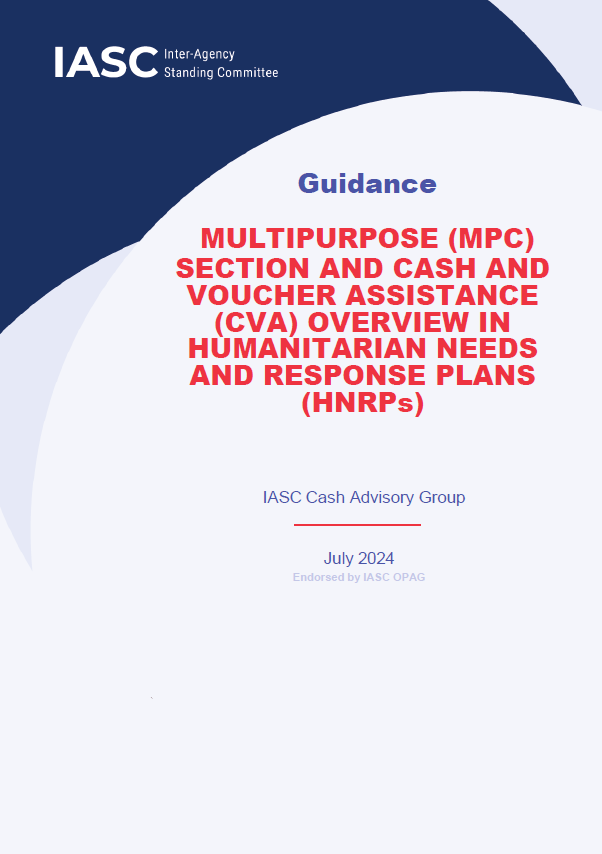Cash and Voucher Assistance
Cash and voucher assistance (CVA) refers to all programmes where cash (or vouchers for goods or services) is provided directly to affected people to meet one or several basic humanitarian needs. Evidence indicates that cash is almost universally preferred by affected populations, and that it can be an effective and efficient means of delivering assistance where markets and operational contexts permit. CVA currently makes up over 20% of humanitarian assistance and is being scaled up across the humanitarian system.
CVA is an effective people-centred modality that provides choice and restores agency to affected populations. Providing cash – particularly multipurpose cash assistance (MPC) which is provided with no restrictions to crisis-affected people – allows those people to prioritize their needs, and it can stimulate local markets, helping to speed up recovery. It is one of the few types of aid that helps meet multiple needs of people in crisis and that enables actors to work collectively across the response. It can also serve as an important bridge between humanitarian and development activities as well as offering a rapid mechanism to transfer assistance to affected people in advance of a crisis (anticipatory action). CVA, particularly MPC, must be considered at the early stage of any response, and ideally prior to the start of the HNRP process.
If you have questions on this subject or the below resources, please email ocha-cvacoordination@un.org. Further IASC resources on CVA can be found here.

